Creating and Sustaining a Healthy and Healing Culture*
How do you know it’s time for you to provide your staff with the same care, resources, and responsiveness they provide to others?
If you see these warning signs:
- Sustained staff burnout
- Exhausted and overcommitted employees, and
- Staff are questioning if they want to stay
The HR Sage can help you create a healthy and healing culture.
We will:
- Facilitate health and healing conversations with your staff.
- Ensure management hears and accepts what its staff are saying.
- Create and conduct hands-on workshops to address your staff’s specific challenges and provide fundamental skills and learning contributing to a health and healing culture.
- Devise tailored, ready-to-use, implementable coaching plans.
Organizations hire The HR Sage when:
- Staff are constantly complaining or pushing pack on ideas to move forward.
- Staff feel management is not listening, hearing, or addressing issues on workplace culture.
- Staff don’t believe management is truly invested in them or their work.
- Staff actions no longer fully support the mission.
- Stakeholders are noticing the problems and are concerned.
- There is a noticeable uptick in turnover.
How and why our approach works:
- Programs are tailored to the challenges your people face.
- Individuals learn that others face the same challenges.
- Individuals learn from each other.
- Management embraces both the challenges and solutions.
- Solutions are committed to and carried out in small and important steps.
- Perspectives, results, and solutions are shared week to week.
- Solutions build on one another.
*Elements of a healthy and healing culture
In a healthy and healing culture, employees believe their work is important and respected. They are given time to recharge, be curious, and creative. Managers and supervisors are great listeners and ask open-ended questions; they communicate regularly with their staff, providing context, setting clear and realistic expectations, setting priorities, and offering staff opportunities to learn and develop. Managers and supervisors recognize the contributions staff are making. Employees feel heard and empowered. Managers recognize when the employees are in overload or are overwhelmed and help them pause and regain a sense of reasonableness. Trust and psychological safety prevail. A health and healing culture requires knowledge, actions, mindsets, and behaviors from leadership and staff.
Connecting and applying what you learn:
To provide staff at all levels with enhanced knowledge and skills, we create and conduct workshops and facilitated discussions tailored to their challenges. While each workshop and facilitated discussion stands alone, each and all can be interwoven to enhance productivity, creativity, and employee satisfaction. Together these contribute to a health and healing culture.
An example of how workshops interweave: You are preparing for a difficult conversation, say, “You want to speak truth to power.” How do you prepare for it? You might want to tap a calming technique you learned in the Calming session. You might want to get in touch with your expanded internal and external Self- Awareness. Then you may consider different options from what you experienced in the Perspectives Workshop. From the Communications Workshop, you might want to apply the platinum rule. From the Boundaries session, say yes to yourself and no with grace to others. From Managing Up, Down & Across, you might consider what’s within your sphere of control or influence. From the Resilience Workshop, you recognize the difference between stress management and resilience. You choose resilience. From Burnout, you recognize you are in burnout and you can manage your energy and shift to your recovery zone to pause and recharge.
And when you use your newly collected wisdom, and have this difficult conversation, you are likely to find it is less difficult than you anticipated and with a better outcome.
Let us help you determine what will strengthen your health and healing culture.
The Essence of Workshops & Facilitated Conversations That Contribute to a Health and Healing Culture
Click on each icon to learn more.
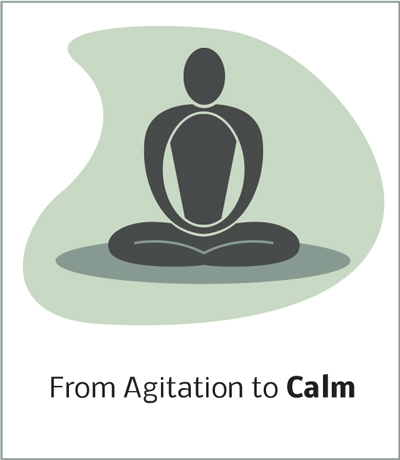
Agitation to Calm
- “Almost everything will work again if you unplug it for a few minutes, including you.” Anne Lamott
- Identify and use calming practices that work for you
- Go from flight/fight/freeze/faint to centered/big picture thinking/creativity

Clearly Setting and Communicating Your Boundaries
- “No” is a complete sentence
- Identify the spheres of boundaries and those that challenge you the most
- Learn the benefits of healthy boundaries and impact of challenged, broken, and unclear boundaries
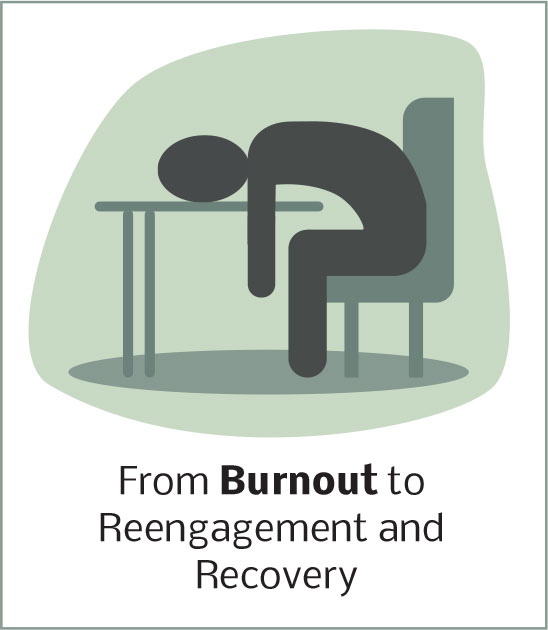
From Burnout to Reengagement and Recovery
- Burnout manifests as lost social connectedness and enthusiasm, lost confidence, and lost energy
- Recognize when you or your staff is in burnout
- Learn to value pause and breaks even though this often feels counter intuitive and counter cultural

Communication to Move Things Forward
- Use the platinum rule – communicate with others the way they to be communicated with
- Recognize your basic communication preferences and those of the people with whom you work
- Learn how communication shifts based on need and urgency
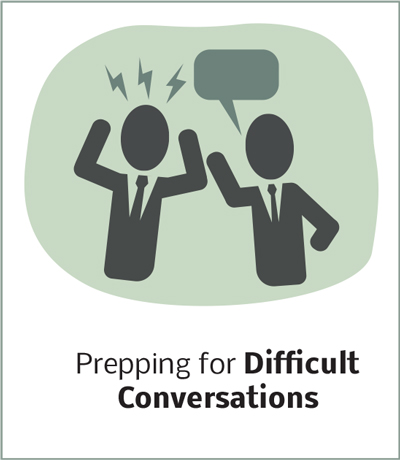
Prepping for Difficult Conversations
- Meaningful conversations considerations – requests, feedback, apologies, conflict
- Preparation to move from difficult to meaningful conversations
- Use carefrontation – because you care enough to share, you are kind, supportive, direct and brave
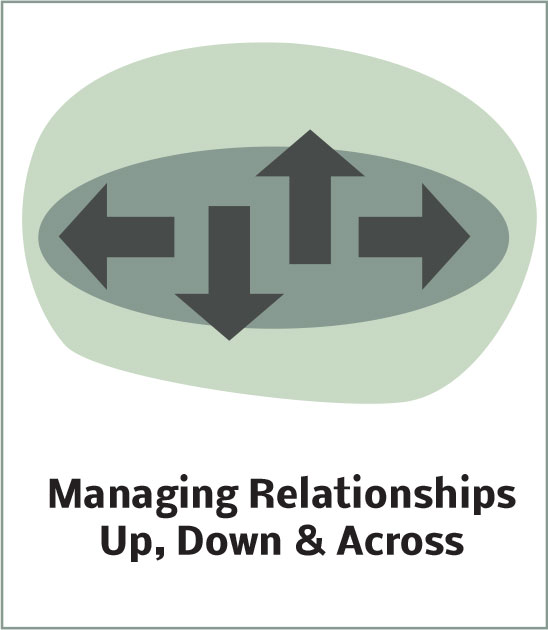
Managing Relationships Up, Down & Across
- Incorporate the Four Ps of managing relationships: Purpose, Perspectives, Plan, and Part
- Determine what’s in your control versus an area of concern or influence
- Listening is key, seek to understand
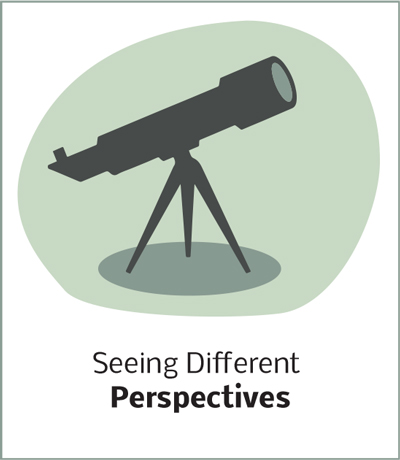
Seeing Different Perspectives
- “When you change the way you look at things, the things you look at change.” Wayne Dyer
- “Between stimulus and response there is a space. In that space is our power to choose our response. In our response lies our growth and our freedom.” Viktor Frankl
- Create options: Identify 3 alternatives to a problem you want to solve

Expanding Resilience
- “Resilience is knowing that you are the only one that has the power and the responsibility to pick yourself up.” Mary Holloway
- Learn the difference between resilience and stress management
- Expand and use your knowledge of the domains and pillars of resilience
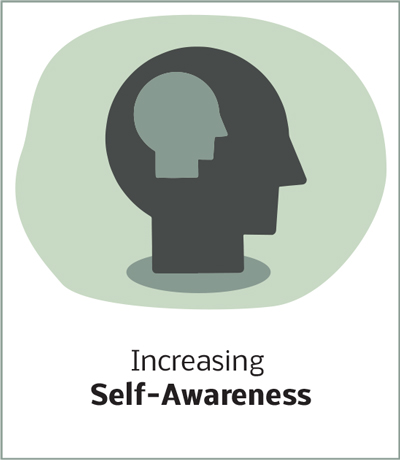
Increasing Self-Awareness
- Two types of self-awareness: Internal (private) and External (public)
- Expand self-awareness skills, behaviors, and mindsets
- Identify self-awareness traits that work well for you and those you want to strengthen
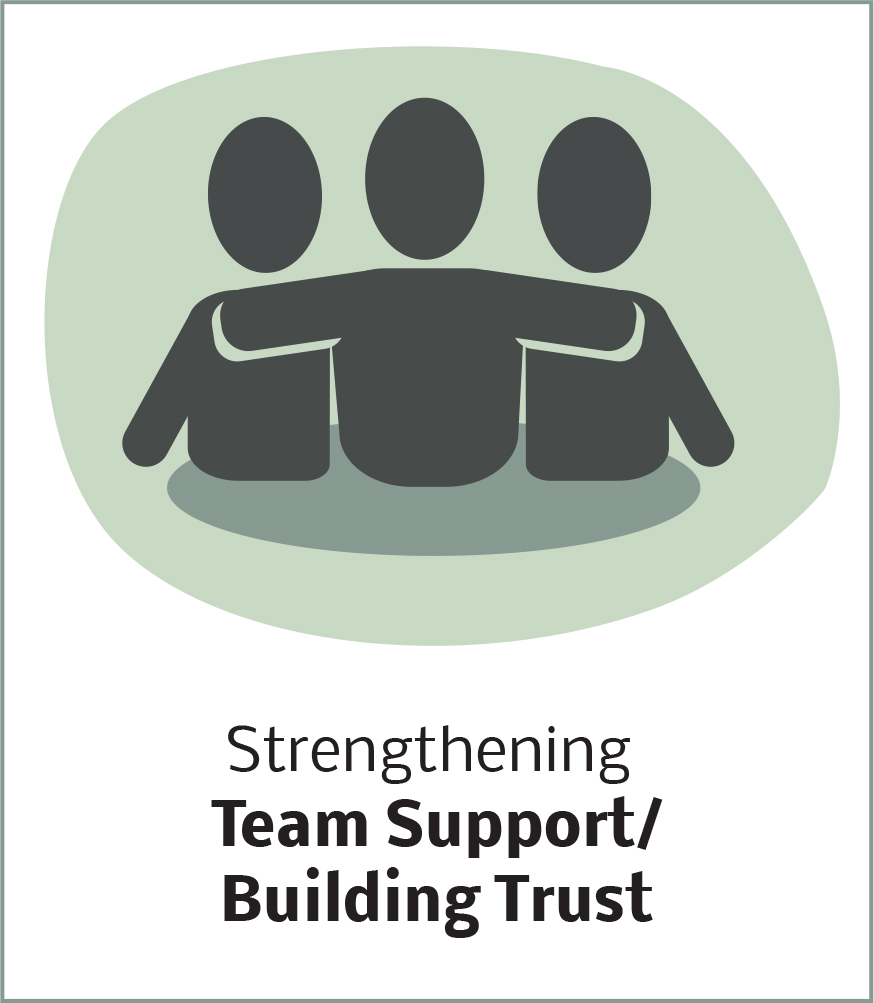
Strengthening Team Support/Building Trust
- Trust and vulnerability are the foundation of teamwork and are often not discussed
- Identifying the pillars of trust and taking a trust self-assessment
- Identifying behaviors that build and reinforce team trust



